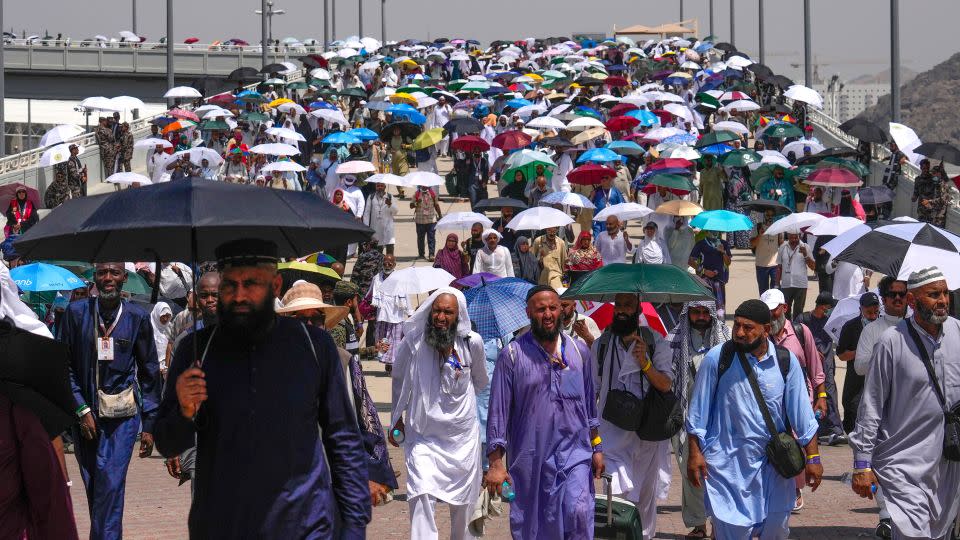
During the recent Hajj pilgrimage in Saudi Arabia, hundreds of Muslim pilgrims lost their lives due to extreme heat. According to various sources, including leaked hospital lists and reports from witnesses, at least 550 people have been confirmed dead. The exact number is expected to rise as many pilgrims were unregistered and not accounted for in the official death tolls released by individual countries.
The Hajj is a religious journey that millions of Muslims are required to undertake at least once in their lifetime. It involves long distances of walking, physical exertion, and intense prayer. This year's pilgrimage took place during unusually high temperatures, with Mecca experiencing temperatures above 115 degrees Fahrenheit (46 degrees Celsius).
The extreme heat led to numerous collapses and deaths among the pilgrims. Some sources report that there were not enough medics or basic facilities to protect against heat-related illnesses, exacerbating the situation.
Despite the tragic events, stories of help and cooperation among Muslims emerged. For instance, a British imam and Hajj guide named Ather Hussain shared his experience of assisting pilgrims during this difficult time. He noted that everywhere he went, people were helping each other out in any way they could.
The heat wave during the Hajj is also a reminder of the climate threat facing the most vulnerable populations. According to reports from various scientific organizations, including the American Meteorological Society and Geophysical Research Letters, heat stress for Hajj pilgrims is expected to exceed 'extreme danger threshold' from 2047 to 2052 and 2079 to 2086. Climate change is expected to increase the risk of heat-related illnesses and deaths during the Hajj due to rising temperatures in the region.
The Saudi authorities have approved a set number of pilgrim visas each year, leading some pilgrims to travel on tourism visas arranged by unlicensed operators. This can result in a lack of proper accommodations and services for these individuals, making them more vulnerable during extreme weather conditions like the one experienced during this year's Hajj.



